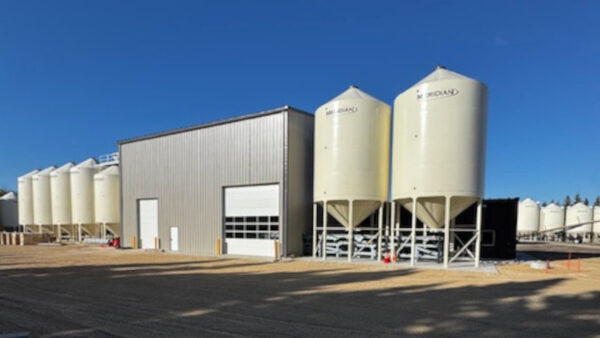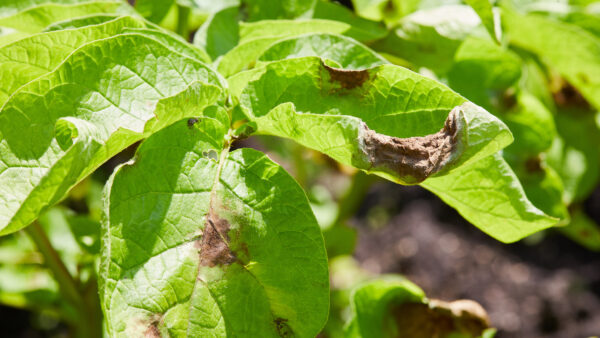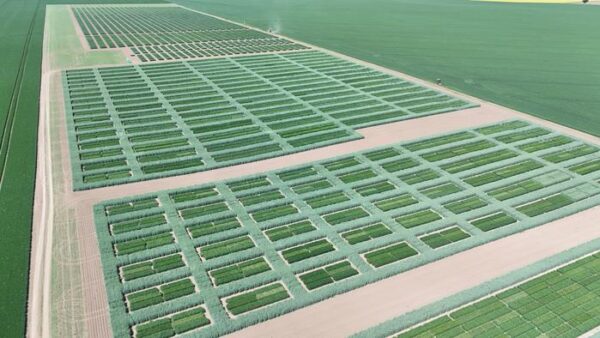Richardson International pulled its financial support from the Canola Council of Canada, the Flax Council of Canada and Soy Canada earlier this year. Oilseed groups are weighing a number of options as they look at their funding models.
Canada’s national oilseed organizations are reviewing their priorities — and leaving the door open to the possibility of forming a national oilseed council — after losing the financial backing of the nation’s largest agri-business. Winnipeg-based Richardson International announced in January it was pulling funding from the Canola Council of Canada, the Flax Council of Canada and Soy Canada.
“They’ve raised some issues that they want to have debated within our organization, so we are doing that,” says Jim Everson, president of the Canola Council. “We have a board-led review underway to ensure that we are fully aligned with the industry and delivering what the whole value chain needs for success. … There will be a variety of approaches in which we reach out to our membership and to other stakeholders.
“I think every association is constantly required to look at the value proposition that it is providing to its members, and it needs to continue to evolve and keep up with the changing needs of the members,” Everson says. “I think that’s something that’s happening across associations, and it’s a good thing in a sense that a strong organization is always well aligned with its membership.”
Richardson’s decision to pull funding came after the company had asked the three value chain organizations to consider joining to together to form a national oilseed council as a way to increase efficiencies. The idea was discussed by the oilseed groups, but no agreement was reached.
“At this point, the Canola Council board has decided that it wants to stay as it is. It does not want to change the fundamental structure of the organization,” Everson says. He notes the Canola Council hasn’t ruled out the notion of a national oilseed council entirely, but it’s something that requires further examination.
“I think the industry is interested in the concept of how the various stakeholders can work together. … Whether that’s formally as an oilseed council, bringing everyone together in a single organization, or whether that is finding different ways of working together to be efficient and to develop good outcomes is another question,” says Everson.
“I think that the concept of a national oilseed council needs to be more thoroughly discussed.”
Everson wouldn’t say how much Richardson International was contributing to the Canola Council, but he notes his organization has had to trim its 2018 operating budget with the loss of Richardson funding.
Flax Council Office Closed
For the Flax Council of Canada, losing Richardson funding was one factor behind the closure of the organization’s Winnipeg headquarters on Jan. 31. Brian Johnson, chair of the Flax Council, says other factors included declining flax production in Western Canada in recent years and the fact that many of the companies involved in shipping Canadian-grown flax to China, our largest overseas customer, have not been contributing levies to the council.
According to Johnson, the closure also meant three staff workers were let go, although one has been hired back on a contract basis to work part-time. While still providing services to its members on a limited basis, the Flax Council is now concentrating its efforts on how to better align itself with important stakeholders in the oilseed industry, like Richardson.
“We have to make sure that we are bringing value to them, and what we are working on right now is really consulting with the industry to determine exactly what they want,” Johnson says.
The goal is to come up with a strategic plan that addresses industry needs as well as a new funding model for the organization. “We’re trying to do this as quickly as possible,” says Johnson. “Then we will be asking those in the industry for their support.”
Johnson says one change is that the agronomic programs developed by Flax Council will now be handled by flaxseed producer organizations. He adds the organization will continue to support the flaxseed industry in the areas of market development and market access “but it’s going to be more pinpointed and it’s going to be managed on a very cost-effective basis.”
Johnson, who declined to share how much the Flax Council had been receiving from Richardson International, says he agrees with the position that the formation of a national oilseed council could lead to greater efficiencies. He says that’s something the Flax Council endorsed during discussions with the Canola Council and Soy Canada last year: “We basically took the lead on that.”
Ron Davidson, executive director of Soy Canada, says the Ottawa-based organization was disappointed by the decision by Richardson to pull funding.
“We certainly regret their departure but … we have to take into account what everyone’s looking for and our members do feel that they’re getting their value,” he says.
“We would hope that Richardson at some point will feel that too,” Davidson adds. “We would hope that eventually everyone in the value chain that has an advantage from increasing soybean production would be contributing.”
Davidson describes Soy Canada as “a very lean organization” that provides “a very good value proposition” for its members, who together contribute about $600,000 annually to the value chain agency.
Soy Canada doesn’t put a limit on how much soybean producers can contribute each year, but it does for agri-companies like Richardson. For them, the maximum annual contribution is $25,000.
“When you lose $25,000 out of an organization that a relatively small budget, it means you have to cut back somewhere,” Davidson says.
Davidson says his organization will be examining its priorities and consulting its members in the wake of the Richardson decision. He maintains this a normal, ongoing process at Soy Canada.
“The organization is always looking at what it’s working on,” he says. “We’re going to be talking about what activities the organization is involved in, why we’re doing those things, what deliverables they may result in, and what value those deliverables provide members.”
Davidson states the leadership at Soy Canada hasn’t said a national oilseed council can’t happen at some point, but it’s something they feel would need to be carefully laid out and planned beforehand.
“I don’t think that anyone has said it’s an impossibility in the future” Davidson says.











